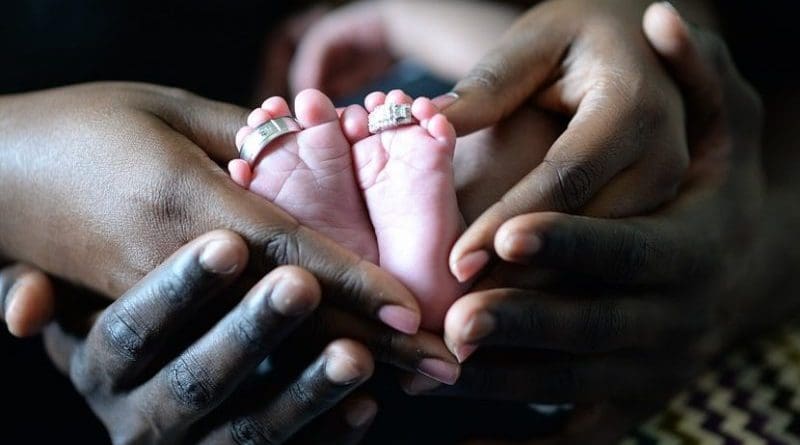Ethical Red Lines Urgently Needed For Human Gene Editing – OpEd
By Arab News
By Nidhal Guessoum*
The world awoke to a shocking piece of news late last month: A Chinese scientist had edited the genes of two twin girls at the fertilization stage and let the two embryos be carried to birth. Furthermore, another woman is currently carrying a baby whose genes have also been edited.
I must first stress that no scientific breakthrough was made in this instance — no procedure that other scientists could not have achieved. Indeed, the technique that was utilized, Crispr-Cas9, often simply referred to as Crispr, was developed a few years ago and was known to potentially have wide-ranging and powerful applications, including on human genes.
Crispr, in a nutshell, is a biochemical technique that allows scientists to send molecules to literally cut pieces of a gene (a little segment of DNA) and thus either render it inoperative or modified in a specific way. Everyone knew that this could, in principle, be used on humans, most likely with good intentions, but the consequences of editing human genes are very difficult to predict, hence committees have been at work to set guidelines on the use of Crispr. In December 2015, a few months after the technique was revealed to the world, an international summit on human gene editing was held in Washington.
What makes Crispr so powerful? Suppose you inherited from one of your parents a gene that makes you likely to develop a certain deficiency (myopia, type 1 diabetes, etc.); one could, in principle, target the genes that are responsible for these illnesses and turn them off before conception. Surely, we would all welcome that and encourage scientists to perform it, right? Similarly, the Chinese scientist who edited the two baby girls’ genes tried to make them “resistant” to the HIV virus and claims to have at least partially succeeded.
What’s wrong with this approach? First, one cannot guarantee success, and indeed one of the few experts who got the chance to review Dr. He Jiankui’s paper (it is still unpublished) has stated that, in one of the twins, the editing was successful in only one of the two genes; the girl will thus not have the resistance to HIV that was intended. Secondly, and more importantly, there was evidence in He’s data that other genes or segments of the DNA were affected, and who knows what impact that will have on the girl’s traits, not to mention her children’s? Indeed, modifications on genes often express themselves only in offspring. And, last but not least, impacts on genes are difficult to detect, so a full list of modifications that will have occurred in this intervention is impossible to draw up.
And, if you’re not yet shocked by these developments, here’s the worst of it. He did perform a gene sequence of the two groups of cells after the gene editing (or “surgery,” as he prefers to refer to it) but before the cells were put into the uterus for the mother to carry until birth. Guess what: He saw (or at least should have seen) that the editing was not totally successful but he still proceeded with the implantation into the mother’s uterus.
He didn’t bother to consult with colleagues, let them review the results, and supervise or monitor the experiment. No, he proceeded single-handedly, being convinced that “parents should get the chance to use this technique.” I wonder whether he even informed the parents of the full results of his work.
Is this kind of experiment even allowed? Dozens of countries have laws that explicitly prohibit this, but not China — at least not yet.
There are additional concerns with this line of research. First, any error made on a gene in an embryo will be carried by the descendants and passed on to others by reproduction, and such errors will be impossible to remove from humanity.
Moreover, even if one checks that no mistakes have been made in such “surgery” before any further steps are taken, who is to guarantee that the technique will only be used for therapeutic purposes, and not for enhancements or evil intentions? In fact, clinics around the world are already offering “designer babies,” and who doesn’t want their child to become a sports champion, a piano virtuoso or other such talent?
Indeed, once that genie is out of the bottle, nobody knows what consequences will follow.
The 2015 international summit on human gene editing issued very clear and strong recommendations: “It would be irresponsible to proceed with any clinical use of (hereditary cell) editing unless and until (1) the relevant safety and efficacy issues have been resolved, based on appropriate understanding and balancing of risks, potential benefits, and alternatives; and (2) there is broad societal consensus about the appropriateness of the proposed application. Moreover, any clinical use should proceed only under appropriate regulatory oversight. At present, these criteria have not been met for any proposed clinical use.”
Ethical international guidelines, if not red lines, are urgently needed for human gene editing. We must not allow individual scientists to recruit consenting parents for dubious experiments through false promises or decide on their own what research is good or bad. The whole of humanity is at stake in such research.
*Nidhal Guessoum is a professor at the American University of Sharjah, UAE. Twitter: @NidhalGuessoum

